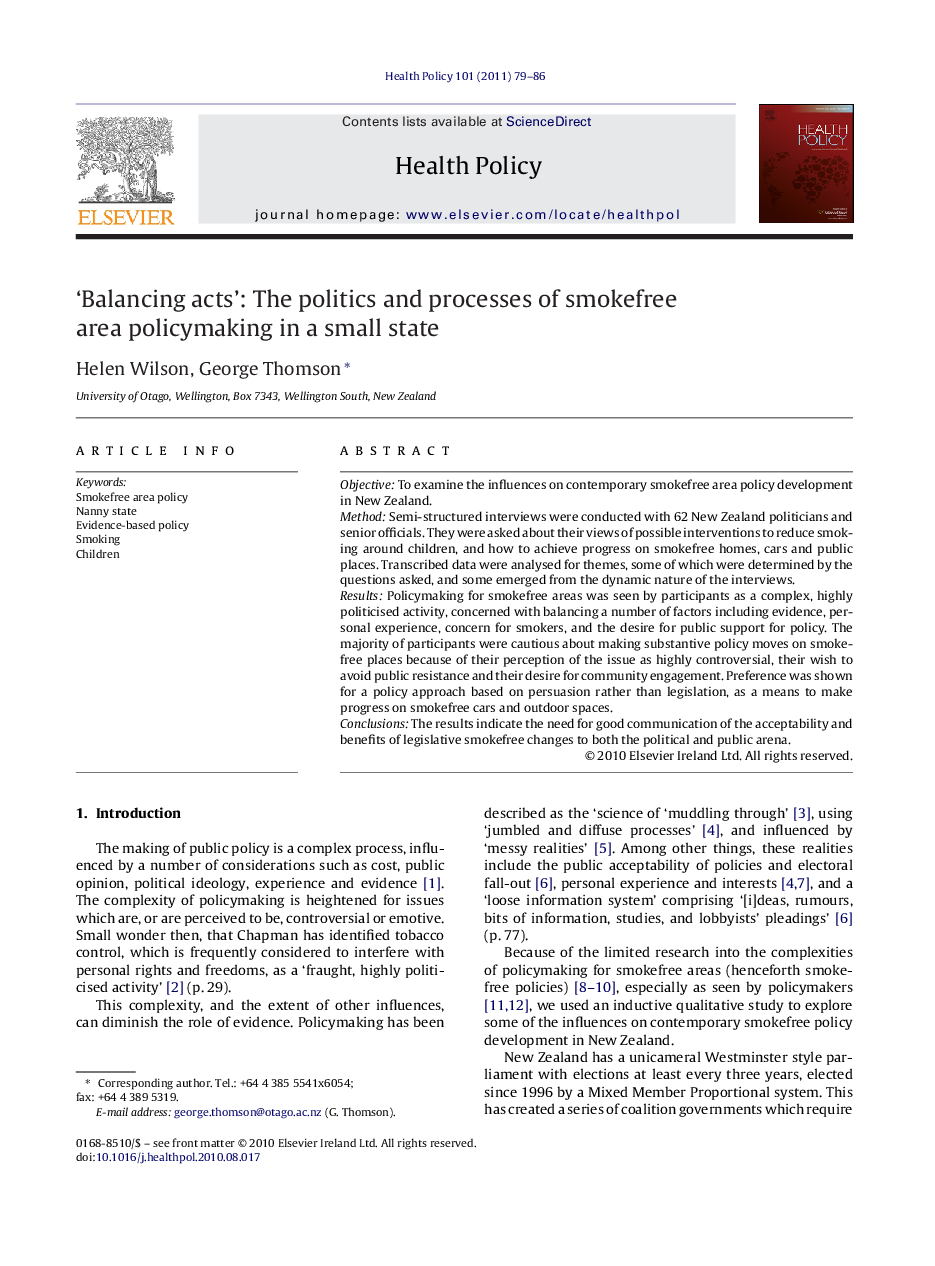| Article ID | Journal | Published Year | Pages | File Type |
|---|---|---|---|---|
| 4198142 | Health Policy | 2011 | 8 Pages |
ObjectiveTo examine the influences on contemporary smokefree area policy development in New Zealand.MethodSemi-structured interviews were conducted with 62 New Zealand politicians and senior officials. They were asked about their views of possible interventions to reduce smoking around children, and how to achieve progress on smokefree homes, cars and public places. Transcribed data were analysed for themes, some of which were determined by the questions asked, and some emerged from the dynamic nature of the interviews.ResultsPolicymaking for smokefree areas was seen by participants as a complex, highly politicised activity, concerned with balancing a number of factors including evidence, personal experience, concern for smokers, and the desire for public support for policy. The majority of participants were cautious about making substantive policy moves on smokefree places because of their perception of the issue as highly controversial, their wish to avoid public resistance and their desire for community engagement. Preference was shown for a policy approach based on persuasion rather than legislation, as a means to make progress on smokefree cars and outdoor spaces.ConclusionsThe results indicate the need for good communication of the acceptability and benefits of legislative smokefree changes to both the political and public arena.
